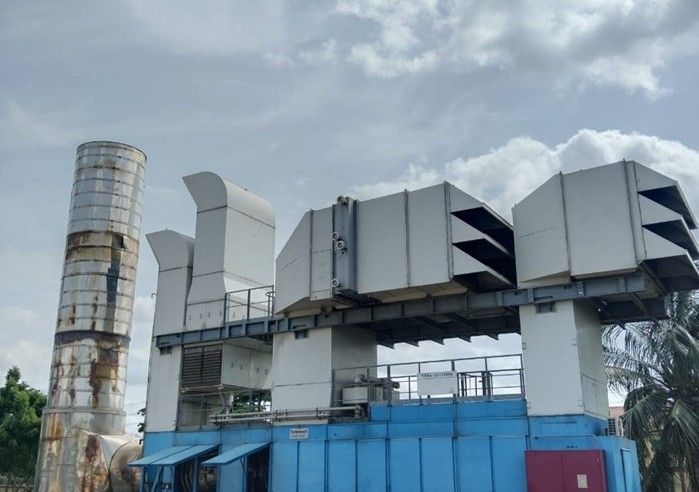#11 PhD Student Abe Teniola Deborah reflecting on Summer School 2025
Obafemi Awolowo University, Ife-Ife Email
Closing Nigeria’s Urban Development Gaps: The Role of Faith-Based Organizations
Nigerian’s rapid urbanization and development gaps
In cities throughout Nigeria, where the hustle never stops and populations continue to grow, essential services like healthcare, clean water, housing, and electricity remain out of reach for millions. According to the Federal Ministry of Works and Housing (2021) about 53.3% of the country’s urban population lives in slums and some of these areas are overlooked when it comes to social welfare, Government resources and capacity are stretched thin, thereby creating a vacuum that has allowed non-state actors such as faith-based organizations (FBOs) to emerge.
While these groups are stepping in to fill critical gaps, their growing presence also invites a deeper question: Who gets access to these services? Are there hidden barriers like religious affiliation or membership? What happens when these groups set the rules in spaces that should be governed by public interest? All these, raises the core concerns of equitable access, representation and control over urban spaces, especially for marginalised groups.
Faith-based organizations have long been present in Nigerian communities, but their role in urban development has expanded significantly in recent years. From the Roman Catholic Church, which runs schools, colleges, and hospitals such as St. Gerard’s in Kaduna and Sacred Heart in Abeokuta, to Islamic organizations like Ansar-ud-Deen Society and Ahmadiyya Muslim Jama'at in Nigeria, religious institutions are delivering education, healthcare, housing, and empowerment programs.
For instance, the Redeemed Christian Church of God (RCCG) has developed an entire settlement that features at least 22 hours of electricity, clean water, clinics, schools, and even waste disposal systems, which is something many state governments struggle to provide. These interventions are not only helpful, but also extremely transformative.
Although as faith-based organizations expand their services, they are not just filling gaps. They are also governing spaces, deciding who gets what, where, and under what conditions. Many faith-based organizations operate within their internal doctrinal frameworks, which limit access to those who do not follow these doctrines. Access to their services is sometimes limited to members or those willing to conform to religious norms. While this may align with their mission, it raises serious questions of equity and inclusiveness, especially in urban spaces where people of diverse faiths, beliefs, and backgrounds coexist.
The policy vacuum: where the state Is silent
These contributions are commendable, particularly in situations where the state fails to meet the demands of its people. However, they also expose policy gaps that demand critical reflection:
Firstly, most faith-based organizations operate within their own frameworks, sometimes limiting access to members or requiring adherence to religious guidelines. This is understandable from the perspective of internal mission goals of FBOs which could unintentionally limit access to services for those who do not share the same beliefs or are unwilling to conform to religious norms. This raises concerns about access and inclusion t , which are central to the idea of inclusive urban futures. If such barrier exist, then people who already struggle financially or are marginalized may end up being excluded, even in urban spaces that are meant to promote diversity.
Secondly, urban governance in Nigeria lacks an integrated policy framework that clearly accounts for the role of faith-based organizations (FBOs) in service delivery. There is no clear national policy that standardizes their contributions, ensures accountability, or outlines partnership models. As a result, their involvement, while impactful, exists in a regulatory vacuum.
Thirdly, when faith-based organizations are at the forefront of service provision, it shows the government’s failure to and handle core responsibilities, and this would make communities more reliant on non-state actors for basic amenities. The presence of non-state actors is not problematic because they provide essential basic amenities; however, if an inclusive urban future is the primary goal, then policy frameworks must step in to support inclusive, equitable, and accountable urban futures.

Power generation plant at RCCG Redemption City. Source: Author
Faith-based organizations are here to stay, and their contributions cannot be ignored, but for their work to align with the goal of inclusive urban development, we need strong policy action, and to bridge this gap, government agencies should:
- Formally recognise faith-based organisations as urban actors and integrate them into local and national development strategies
- Develop inclusive policies that ensure faith-based-led services remain accessible to all residents, regardless of their faith.
- Create accountability mechanisms to ensure service quality and sustainability.
- Strengthen public institutions so that non-state actors complement, rather than replace, the functions of government.
Conclusion: Beyond infrastructure to equity
When we discuss inclusive urban futures, we often think of physical infrastructure, such as roads, water, and clinics, but it is also about who governs, who decides, and who has access. Faith-based organizations are shaping urban development, and so the goal should be to harmonise their role within an inclusive governance framework that ensures every citizen has equal rights to urban life, regardless of who provides the service. Otherwise, we risk replicating the very exclusion they seek to address. Inclusion means that every urban resident, regardless of belief, background, or affiliation, has equal rights to live, thrive, and belong in the city, and that is the future we seek.

